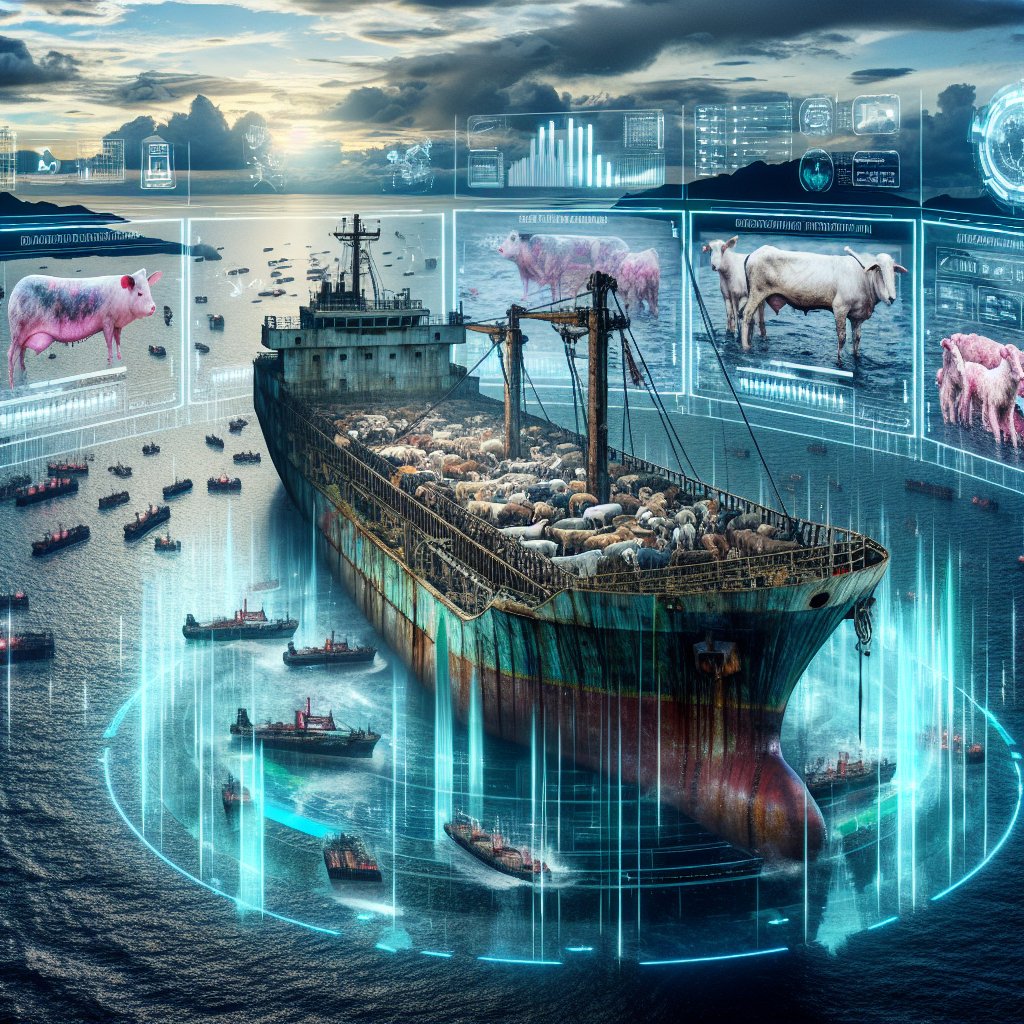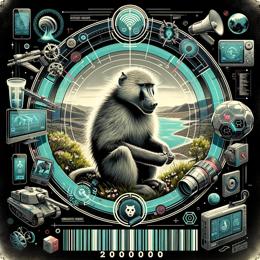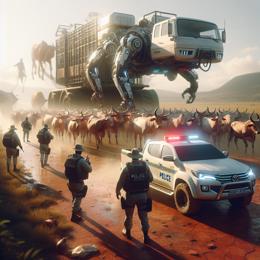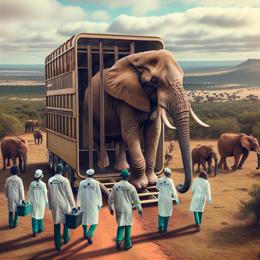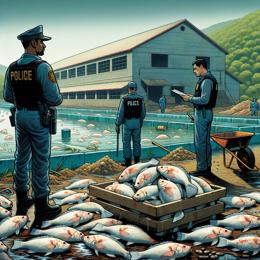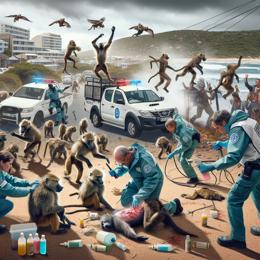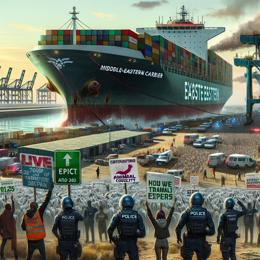Image created by AI
The Horrors of Live Animal Translocations at Sea: Urgent Reforms Needed
The practices of live animal translocations at sea have come under intense criticism as details emerge about the inhumane conditions endured by millions of animals transported globally. Dr. Lynn Simpson, a seasoned veterinary professional, was once appointed by the Australian government to monitor the conditions aboard these shipments. Her findings, considered too distressing for publication by the very department that hired her, sparked a dismissal that only fueled her determination to expose this grim trade.
In response, Dr. Simpson established a blog to shed light on her experiences, painting a picture of extreme neglect and suffering. She recounts instances where vessels were suffused with an inescapable stench, the air filled with the decomposition of carcasses, and seeing dead animals in various states of decay handled with disturbing nonchalance.
Animal translocation is a lucrative industry, shipping almost two billion animals per year across the high seas. These journeys are often to the Middle East, where the demand for halal-slaughtered meat is high. However, the methods of translocation starkly contrast the religious principles of compassion and respect mandated by halal laws, which emphasize humane treatment throughout an animal's life.
This issue was brought to the forefront when the Al Kuwait, a ship carrying 19,000 cattle, docked in Cape Town, reflecting the absence of adequate welfare measures and the pains necessitated by such voyages. Organizations like Four Paws and the South African NSPCA have been vocally advocating for a total ban on live transports by sea, but their pleas have not yet received the legislative backing needed to transform the industry.
An alternative exists: animals could be humanely slaughtered in their country of origin and transported as frozen carcasses, a method that is gaining acceptance and aligns with religious protocols. Yet, live exports persist, facilitated by a fleet often comprised of aging and repurposed vessels, notorious for failing to meet even basic welfare standards.
The European Commission has revealed a disturbing insight, identifying over half of the vessels used for animal transfers as high-risk for maritime safety, further complicating the welfare of the animals on board. Problems such as overcrowding, poor ventilation, insufficient resources, and heightened risks of injury are rampant, often leading to catastrophic incidents and mass animal deaths.
A shift towards ships designed specifically for livestock transport is under consideration, but market challenges and economic incentives for using older ships continue to undermine such progress. Moreover, the issue of vessels sailing under flags of convenience exacerbates concerns around enforcement of standards and accountability for animal welfare.
The story of the Al Kuwait is not unique but part of an extensive history of marine animal transport tragedies. From Jordan to Australia and across the European waters, thousands of animals have needlessly suffered and perished due to conditions that Dr. Simpson and others like her have long warned against. They have seen firsthand the effects of prolonged confinement on animals, conditions that no creature should endure.
The global outcry for reform and the push for a ban continues to grow as the evidence becomes undeniable. With the Al Kuwait on its latest journey, one cannot ignore the urgent plea from advocates, veterinarians, and concerned citizens for a change that prioritizes compassion over commerce.
